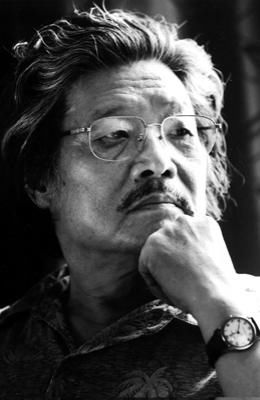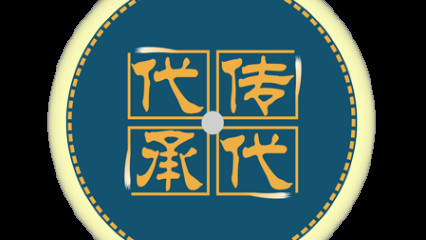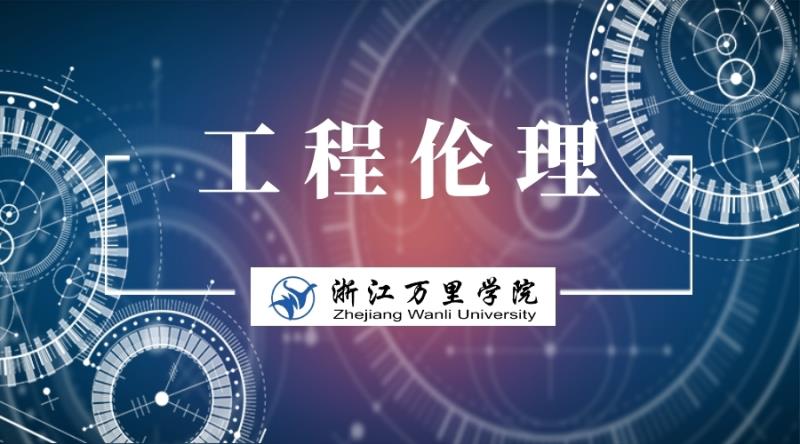
Chinese Traditional Culture课程:前往报名学习

This course is designed to stimulate students' love for Chinese traditional culture, guiding students to familiarize with Chinese traditional culture.
开设学校:西安交通大学;学科:文学文化、

This course is designed to stimulate students' love for Chinese traditional culture, guiding students to familiarize with Chinese traditional culture.
-0.1 Introduction to Culture
-0.2 Reunderstanding of the Traditional Chinese Culture
--0.2 Reunderstanding of the Traditional Chinese Culture
-Unit Test
-1.1 People-oriented
-1.2 Advocating Morality and Righteousness
--1.2 Advocating Morality and Righteousness
-1.3 Advocating Mean and Harmony
--1.3 Advocating Mean and Harmony
-1.4 Practical Rationalism
-Unit Test
-2.1 Confucius's View on Benevolence (I)
--2.1 Confucius's View on Benevolence (I)
-2.2 Confucius's View on Benevolence (II)
--2.2 Confucius's View on Benevolence (II)
-2.3 Connotation of Union of Heaven and Man
--2.3 Connotation of Union of Heaven and Man
-2.4 Theory of Realizing Innate Knowledge
--2.4 Theory of Realizing Innate Knowledge
-Unit Test
-3.1 Introduction to Laozi
-3.2 Introduction to the Book Laozi
--3.2 Introduction to the Book Laozi
-3.3 Laozi’s Thoughts (I)
-3.4 Laozi’s Thoughts (II)
-Unit Test
-4.1 The Fables of Kun-Peng (I)
--4.1 The Fables of Kun-Peng (I)
-4.2 The Fables of Kun-Peng (II)
--4.2 The Fables of Kun-Peng (II)
-4.3 The Fables of Heaven (I)
--4.3 The Fables of Heaven (I)
-4.5 Skilled and Magical Craftsmanship
--4.5 Skilled and Magical Craftsmanship
-4.6 Qin Yi's condolence of Lao Dan
--4.6 Qin Yi's condolence of Lao Dan
-Unit Test
-5.1 Sakyamuni
-5.2 Buddhist Scripture Translation and Pilgrimage to the West
--5.2 Buddhist Scripture Translation and Pilgrimage to the West
-5.3 initial development of Zen
--5.3 initial development of Zen
-5.4 Origin of Zen
-5.5 Characteristics of Zen
-Unit Test
-6.1 The Book of Songs
--test
-6.2 Yuanqu
--test
-6.3 A Dream of Red Mansions
--test
-7.1 The Beauty of Chinese Music (I)
--7.1 The Beauty of Chinese Music (I)
--Test
-7.2 The Beauty of Chinese Music (II)
--7.2 The Beauty of Chinese Music (II)
--Test
-7.3 Boya and "Flowing Water"
--7.3 Boya and "Flowing Water"
--Test
-7.4 Ancient Music and Rhythm of Guqin (I)
--7.4 Ancient Music and Rhythm of Guqin (I)
--Test
-7.5 Ancient Music and Rhythm of Guqin (II)
--7.5 Ancient Music and Rhythm of Guqin (II)
--Test
-8.1 Differences Between Traditional Chinese Art and Classical Western Art and Root Causes
--8.1 Differences Between Traditional Chinese Art and Classical Western Art and Root Causes
--test
-8.2 Similarities and Differences Between Chinese and Western Traditional Painting Thinking Modes
--8.2 Similarities and Differences Between Chinese and Western Traditional Painting Thinking Modes
--test
-8.3 Color Charm of Traditional Chinese Painting
--8.3 Color Charm of Traditional Chinese Painting
--test
-8.4 Different Perspective in Chinese and Western Paintings
--8.4 Different Perspective in Chinese and Western Paintings
--test
-8.5 Similarities and differences of Line Shapes in Chinese and Western Paintings
--8.5 Similarities and differences of Line Shapes in Chinese and Western Paintings
--test
-9.1 Introduction to Calligraphy(I)
--9.1 Introduction to Calligraphy(I)
-9.2 Introduction to Calligraphy(II)
--9.2 Introduction to Calligraphy(II)
--test
-9.3 Understanding the Art of Calligraphy with Traditional Chinese Cultural Thought
--9.3 Understanding the Art of Calligraphy with Traditional Chinese Cultural Thought
--test
-9.4 Understanding Structure and Composition of Chinese Characters with Traditional Chinese Cultural
--9.4 Understanding Structure and Composition of Chinese Characters with Traditional Chinese Cultural
-10.1 Position of Historiography in Traditional Chinese Culture
--10.1 Position of Historiography in Traditional Chinese Culture
-10.2 Characteristics of Chinese Traditional Historiography
--10.2 Characteristics of Chinese Traditional Historiography
-10.3 Cultural Implications of Chinese Traditional Historiography
--10.3 Cultural Implications of Chinese Traditional Historiography
-Unit Test
-Chinese Traditional Culture-Final Test
钟明善,书画篆刻家、书论家、书法教育家。曾任中国书协副主席,现为中国书法家协会顾问;陕西省书协名誉主席,西安书学院院长,陕西省于右任书法学会会长,西安交通大学艺术博物馆馆长,西安交通大学人文社会科学学院教授,博士生导师。 著有:《中国书法史》、《篆刻选》、《谈艺录》、《钟明善书画集》、《自书楹联韵语》、《书法入门》、《行书技法》、《书法基础与欣赏》(上下集)、《于右任书法艺术管窥》、《意象艺术散论》、《艺林絮语》、《长安书法胜迹》、《钟明善书学论集》等著作。 主编:《中国传统文化精义》、《于右任书法全集》、《行书临范》、《金文三种》、《于右任的书法艺术》、《名碑贴学习与欣赏》等。参撰:《中国大百科全书·美术卷》、《中国书法篆刻鉴赏词典》、《中华诗词鉴赏词典》。2001年被国务院授予有突出贡献专家称号,享受国家特殊津贴;省级教学名师;2009年获“全国五一劳动奖章”。
韩鹏杰,西安交通大学人文社会科学学院哲学系教授,博士生导师。研究方向:中国哲学。代表著作有:《风雅的智慧》、《中国之辨》、《中国传统文化精义》、《中国文化的艺术精神》、《华夏艺术历程》、《雄辩天下》、《毛泽东与中国传统智慧》等著作。主持国家教委课题 “中国古代无神论哲学和现代无神论教育”、“中国传统文化精神在和谐社会建设中的价值”等。所授课程《艺术思维与方法》入选2012“国家级精品视频公开课”,《道家的智慧》入选2013“国家级精品视频公开课”并登陆美国Coursera平台;省级教学名师。担任全国博士后评审专家;陕西省哲学学会常务理事;中华名辨盟副会长。
陆卫明,西安交通大学马克思主义学院教授,博士生导师。先后担任中共党史教研室主任,历史研究所所长,政治学与行政学系主任,政治学系主任等职。主持、参与“中国传统文化课程建设与文化素质教育”,“儒学与现代化”,“中西文化论争及其流派述评”,“毛泽东与中国传统文化”等多项国家、教育部、学校资助的课题。著有《中国传统文化精意》、《中国文化的艺术精神》、《毛泽东与中国传统文化》、《中国文化精粹》、《中国现代化的思想历程》、《中国之辨》、《雄辩天下》等专著多部; “巨人的足迹”2012年入选首批“国家级精品视频公开课”, 校级教学名师。获国家教育部霍英东教育及基金会颁发优秀青年教师奖等。
龚建平,西安交通大学人文社会科学学院哲学系教授,博士生导师。擅长先秦哲学,现代新儒家哲学。主要承担与中国传统文化与哲学有关的课程有:《中国文化》、《中国哲学史》、《中国传统文化精义》、《宋明理学研究》、《文化学概论》、《中国法律思想史》等。先后出版著作《中西哲学文献解读》、《梁漱溟哲学思想》等5部,发表相关论文三十余篇。获省部级学术成果三等奖,主持过多个科研课题。
张蓉,西安交通大学中文系教授,文艺学,传播学硕士生导师。讲授“中国古代文学史”、“电影艺术概论”等课程。主要从事美学与中国文学研究,传播与文化批评。主要著作有《古代诗学识鉴》、《中国文化的艺术精神》、等,主编《中国古典小说鉴赏》,《电影艺术概论》等6部教材。主持省级研究课题2项。担任全国大学语文研究会理事等。
李娟,西安交通大学人文学院副教授。研究方向:中国音乐美学。中国高等教育学会音乐专业委员会会员。著作有《中国传统音乐赏析》、《华夏艺术历程》、《中国传统文化精义》等多部著作、教材;多篇论文被收录在ICMC(国际计算机音乐会议)等国际会议中;曾获“西安交通大学中青年教师讲课比赛”一等奖;《抗战时期高校校歌中的爱国主义精神研究》和《为世界之光——<国立交通大学校歌>的精神价值分析》获教育部“高校艺术教育科研论文”三等奖。
李红,西安交通大学人文社会科学学院中文系副教授,硕士生导师。主要著作有《中国传统文化精神对和谐社会建设的价值》、《美国高校大学生学业规划概述》、《影响中国传统文化的生态因素分析》、《探析川端康成小说中两性情爱关系的变迁及其原因》《企业慈善:双重底线及其战略性选择——基于企业社会表现视域下的认识》等。
邓妙子,现为西安交通大学人文社会科学学院哲学系教师。承担的主要课程有“中国传统文化概论”、“马克思主义哲学”、“中国哲学史”、“伦理学”等。科研情况有:《适应现代医学发展,培养学生合理的知识结构》,龚建平、邓妙子编著《中西哲学文献解读》。2011年陕西省社会科学基金项目第一参与人,《中庸》、《大学》工夫论研究。
鲁鹏,西安交通大学人文社会科学学院艺术系副教授,硕士生导师。主持陕西省文化厅软科学项目《钱学森美学思想研究》,2012年西安市社科基金《城市导视研究》。发表《钱学森对灵感思维的建树》、《现代科学技术视阈下的灵感思维本质的研究》、《从古代长安城到现代“山水城市”的哲学思考》、《唯象是中国传统文化的根》等多篇论文。
宋希斌,西安交通大学马克思主义学院中国近现代历史研究所副教授,硕士生导师。主要从事清史、中国近代史及中国传统文化的科研与教学。在《清史研究》、《历史档案》、《齐鲁学刊》等期刊发表论文多篇,主持“教育部人文社会科学研究青年基金项目”一项,参与多项“国家社会科学基金青年项目”及“教育部人文社会科学重点研究基地重大项目”的研究。
王劲,西安交通大学人文学院中国书法系副教授,中国书法家协会会员,青年书法家协会副秘书长,陕西省于右任书法学会副会长,西安市青年书法家协会副主席,陕西省中学书法教材副主编,《于右任书法全集》副主编。作品有:全国第十届书法篆刻展(中国书协)、全国首届行书展(中国书协)、第二届全国草书展(中国书协)、第三届全国行草书法展(中国书协)、首届中国西部书法篆刻展(中国书协)、首届全国优秀青年书法家作品邀请展(北京永昌美术馆)、南北书风展(书法网)、走向世界——当代书画名家美国邀请展(美国中国书法家协会)等。著有《历代楷书名作鉴赏与临习》(陕西人民出版社),主编《西安交通大学博物馆藏品集锦·碑石书法卷》(陕西人民美术出版社)等。


